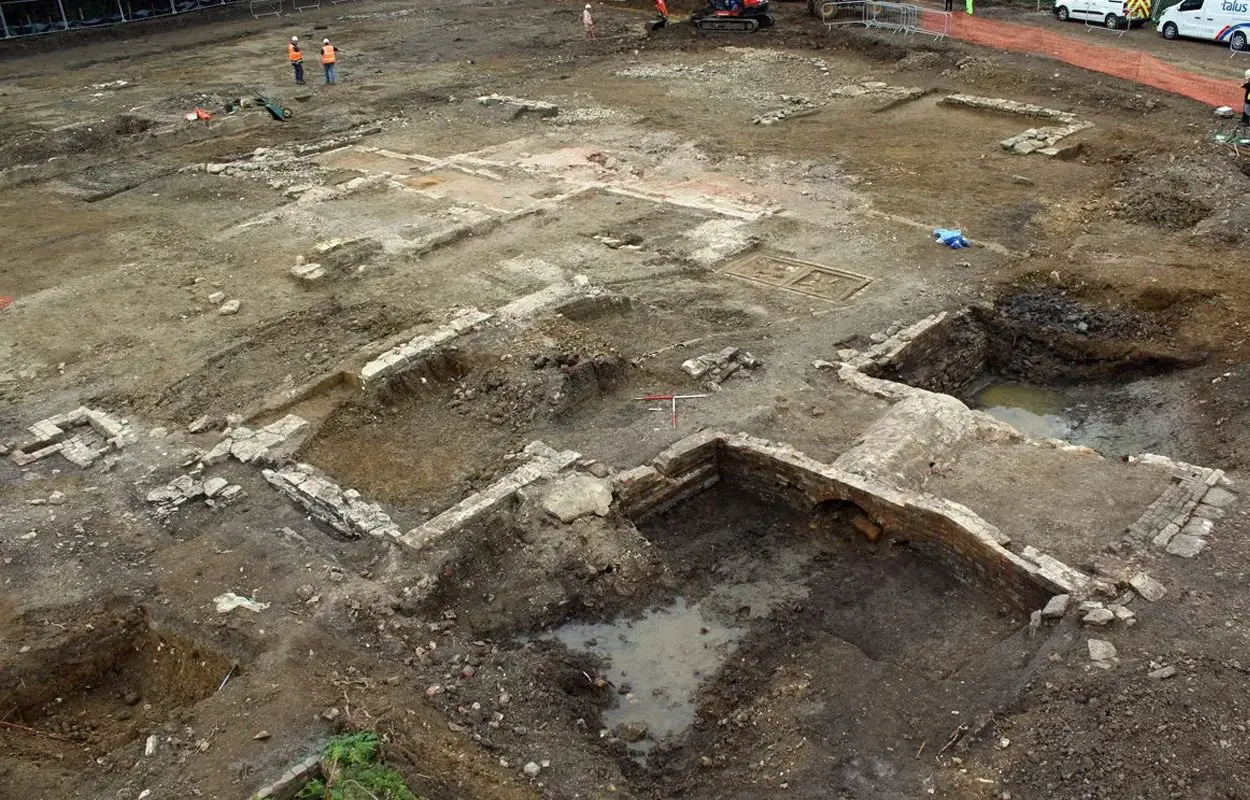A team of archaeologists from Cotswold Archaeology have uncovered a medieval farmhouse at Cowfield Farm, located in Tewkesbury, England.
The site is located at a former 18th-century brick farmhouse which is being developed following a fire in 2004.
According to the researchers, the origins of Cowfield Farm lie in the 12th/13th centuries when a farmhouse occupied the site surrounded by a rectangular enclosure. The earliest documentary reference to Cowfield dates to 1535 when it was part of a freehold estate belonging to Tewkesbury Abbey.
To the south was a sheepcote: a long, narrow building for housing sheep, but documentary research carried out as part of the project suggests the main role of the farm was as a specialist cattle establishment known as a vaccary.
Vaccaries typically encompassed meadows, drier pasture, hayfields, and the home farm which would have included the farmhouse, a cowshed, and other buildings. During this period, cattle were primarily for dairying, but older animals and bullocks from Cowfield would have been driven to Tewkesbury to provide meat for the urban population and the abbey monks.
The original farmhouse was demolished, and a new one was built with stone foundations surrounded by a substantial rectangular moat measuring 65 metres by 35–55 metres across.
Very little of the new farmhouse survived, however, a large corner stone suggests it was a rectangular building divided by a central passage, with service rooms to one side and a hall and sleeping chamber to the other. North of the moat, a large aisled building built over the original farmhouse was probably a cowshed and may have included rooms for dairying.
Some of the finds uncovered include a ceramic dripping tray used for roasting meat, and a pilgrim badge depicting the archangel Michael defeating the Devil in the form of a dragon, possibly originating from Mont St Michel in France.
Header Image Credit : Cotsworld Archaeology





